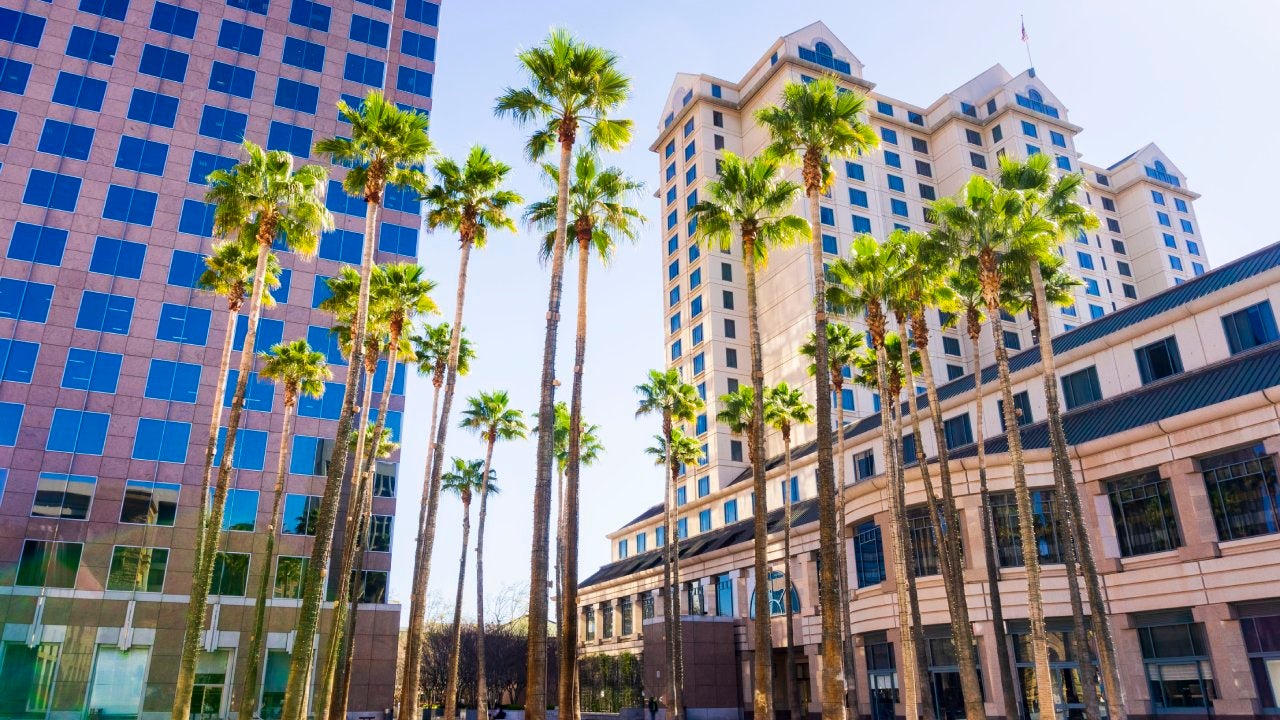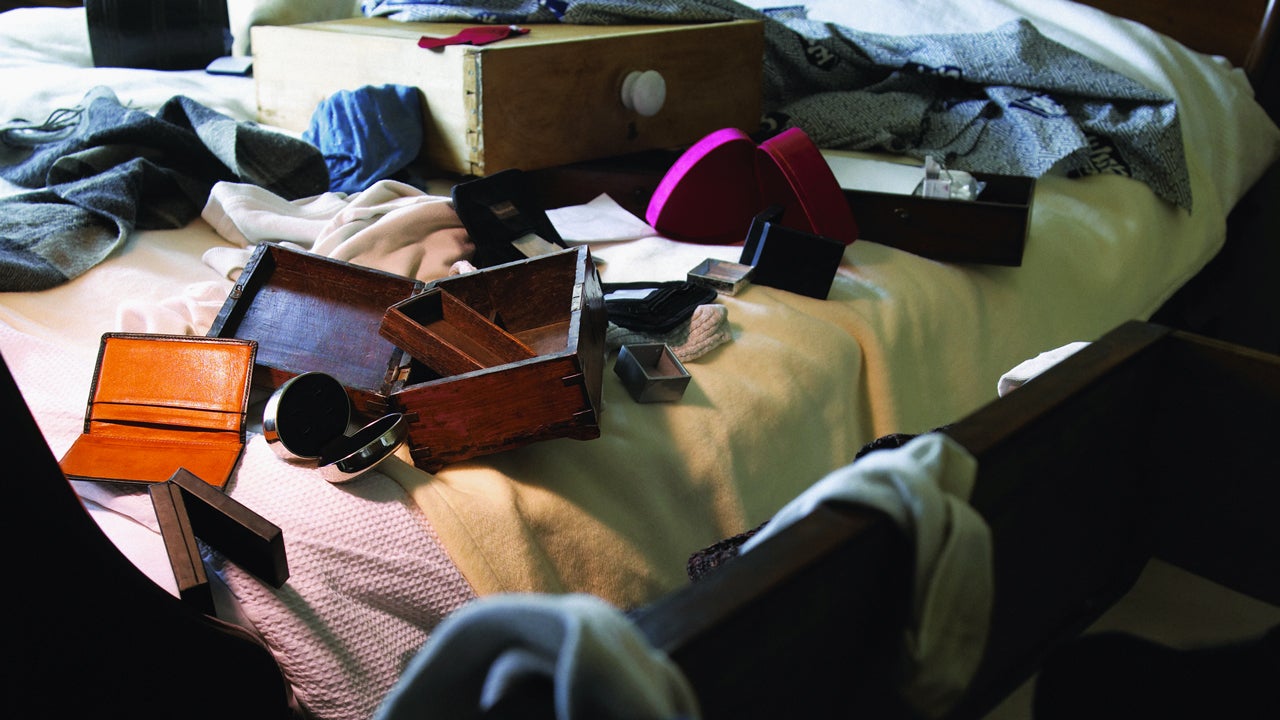Most haunted places in the U.S.

We’ve seen this film before: a family buys a house that’s maybe a little run-down, but has great bones and is a steal for the neighborhood. After moving in, we learn that the five-bedroom, four-bath colonial came with a few unexpected residents — the paranormal type.
Haunted houses aren’t just a Hollywood trope; one in three Americans believe that ghosts exist, and around one in four Americans believe that they have seen a ghost, according to a recent poll. Perhaps more shocking, one in four Americans believes that they live in a haunted house. If something goes bump in the night, will your home insurance policy cover it? The answer depends on your policy type and insurance company.
- More than one in four (28%) Americans believe that they have lived in a haunted house. (Realtor.com)
- Those who believe their house is haunted most commonly cite strange noises as the reason why, followed by strange feelings in certain rooms and objects moving or disappearing. (Realtor.com)
- 33% of Americans are open to living in a haunted house. (Realtor.com)
- Almost half (47%) of Americans would live in a home where someone died. (Realtor.com)
- 40% of Americans would need a price duction to choose a haunted home over a non-haunted home. (Realtor.com)
- Although religious affiliation declined over the past 40 years, belief in the afterlife remained constant. In 1978, around 70% of people believed in the afterlife, and about 74% reported the same in 2018. (New York Times)
- California real estate agent Randall Bell says that stigmatized property can sell for 10% to 25% less than a non-stigmatized one. (JSTOR Daily)
- Not all home insurance policies will let you file a claim for paranormal damage.
- An HO-3 home insurance policy won’t cover your personal belongings from paranormal damage. However, an HO-5 policy covers your personal belongings on an open-peril basis, which means you may be able to file a claim for an unusual cause of damage if not specifically excluded.
Most haunted houses in America
While cities across the United States have their fair share of ghost stories, some homes stand out for their particularly chilling histories and paranormal activities. Here are some of the most haunted homes in the U.S.
Whaley House and Museum (San Diego, California)
The Whaley House, built on the grounds of a public execution, is believed to be haunted by ‘Yankee Jim’ Robinson, as well as Thomas and Anna Whaley, a young girl, and even a family pet. Visitors frequently recount tales of hearing footsteps, seeing spectral figures, and feeling a sudden chill.
House of Death (New York, New York)
This unique Greenwich Village brownstone, known as the ‘House of Death,’ is rumored to be haunted by the spirits of 22 individuals, including the famed author Mark Twain. Visitors often share stories of sightings of these apparitions and experiencing bizarre happenings within its walls.
Winchester Mystery House (San Jose, California)
Former home of Sarah Winchester (who built the property) before her passing now believed to be haunted by the spirits of those claimed by Winchester rifles, this home is infamous for its labyrinthine layout, featuring dead ends and staircases leading nowhere. Visitors have mentioned witnessing apparitions and experiencing other unaccountable phenomena within the mansion.
The Lizzie Borden House (Fall River, Massachusetts)
Is Lizzie Borden’s former residence the most haunted house in the U.S.? Locals think it’s one of them. The Lizzie Borden House, now a bed and breakfast, is the past home of Andrew and Abby Borden. Lizzie had a contentious relationship with her father Andrew and stepmother Abby, and is said to have murdered them gruesomely with an axe. Guests of the Lizzie Borden House report hearing screams, sinister laughs and seeing Lizzie’s ghost at the top of the stairs.
Franklin Castle (Cleveland, Ohio)
Hannes Tiedemann built Franklin Castle in the 1800s. Tiedemann had a reputation for being cruel — and the mysterious deaths of multiple members of the Tiedemann family supported this reputation. After Tiedemann moved away, the house was occupied by the German Socialist Party, which was rumored to harbor Nazi Spies. Since then, investigations have found human bones in the walls.
Author and investigative historian William G. Krejci, who wrote “Haunted Franklin Castle,” says visitors to the home may hear unexplained footsteps in the ballroom on the top floor and the giggling of nonexistent children. The home remains a private residence, so it isn’t open to visitors. But ghost tours often pass the home to recount its cursed past.
Marshall House (Savannah, Georgia)
Savannah, Georgia — one of the most haunted cities in the U.S. — features the haunted “Marshall House” — which served as a Union hospital during the civil war, housing patients with yellow fever and battle wounds. Reports include ghosts in the hallways and foyers.
Villisca Axe Murder House (Villisca, Iowa)
Known for the chilling ax murder of a family and two friends in 1912, this home is now a popular spot for paranormal investigators. Visitors often recount experiences of spectral sightings, autonomous door movements, and tactile experiences like sensing an unseen presence or receiving inexplicable scratches.
How stigmatized property affects home insurance
Stigmatized property is a location “that has been psychologically impacted by an event which occurred, or was suspected to have occurred, on the property, such event being one that has no physical impact of any kind,” according to the National Association of Realtors. An example of stigmatized property might be a home that was used as a brothel or is rumored to be the site of a homicide.
Stigmatized properties, while having no physical issues, may experience lower home values and could even lower the values of the homes around them. However, even if the home’s market value is lower, it doesn’t typically affect homeowners insurance costs. Homeowners insurance is designed to cover a home’s estimated rebuild costs, which are different from how a home’s market value is determined. But, it’s still important to shop with multiple insurance companies to find the best coverage for your home’s needs at a price that fits your budget.
Buying a haunted house
If you’re part of the one-third of Americans who would live in a haunted house, you’re in luck. There are a few haunted houses on the market, for those looking for a property with a little extra charm:
- 562 Fifth Ave, Troy, NY: This four-bedroom home is said to be haunted by nine ghosts, one of which is mobster John T. “Legs” Diamond.
- 349 N Monroe St, Lapeer, MI: Formerly a church, this property has been converted into a four-bed, three-bath home. While it may not have ghosts, its stained glass windows, organ and rows of pews would certainly satisfy a homeowner with a taste for the macabre.
- 2187 California St, San Francisco, CA: Called the Chambers Mansion, the Victorian home was built for Utah mining tycoon R.C Chambers and his wife Eudora, who died by suicide in the home. It’s said that she still haunts the property to this day.
Do sellers have to disclose if their house is haunted?
It depends on your state’s stigmatized property laws. Realtors are required to disclose whether or not a property is stigmatized in Alaska, California, and South Dakota. In all other states, there is no disclosure requirement. So, if you get an eerie feeling while touring a home, you may want to ask just in case.
You may also like

Sell your house fast in Arizona

Best places to live in California in 2023

Most common items stolen in home burglaries



